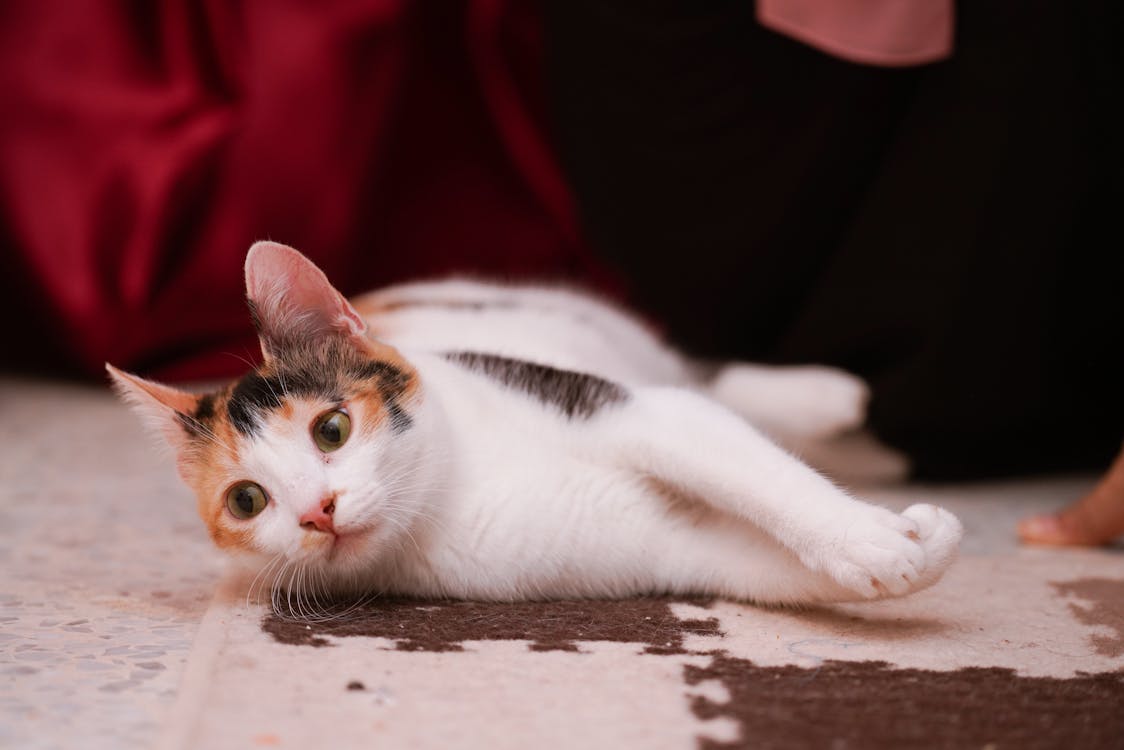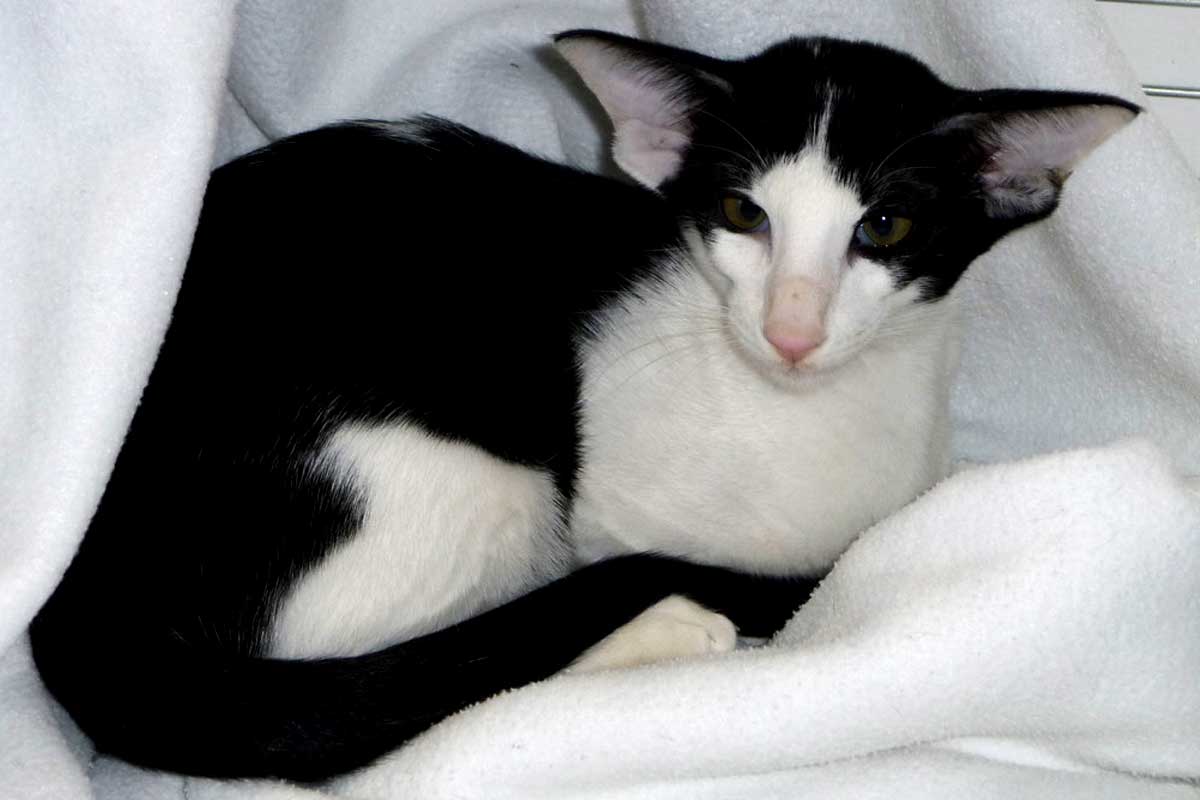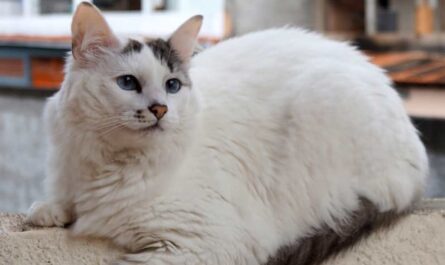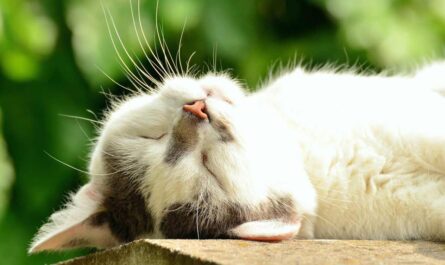1. Changes in Appetite
Your feline friend may display alterations in their eating habits. Keep a keen eye on whether they’re eating more or less than usual. Pregnant cats might exhibit an increased appetite, seeking out food more frequently or consuming larger portions. Conversely, some expectant cats may lose interest in food altogether, experiencing a decrease in appetite due to hormonal changes or discomfort associated with pregnancy. Observe if your cat’s dietary preferences have shifted, such as showing a sudden preference for certain types of food or avoiding others entirely. Any significant changes in appetite warrant attention and may indicate pregnancy.
2. Behavioral Changes
Pregnancy can bring about shifts in your cat’s behavior. Notice if your usually aloof cat becomes more affectionate or seeks out more attention than usual. Conversely, some pregnant cats might become more withdrawn or irritable, preferring solitude over interaction. Look for signs of nesting behavior, such as rearranging bedding or seeking out secluded areas to rest. Additionally, pregnant cats may exhibit heightened anxiety or restlessness as they prepare for the arrival of their kittens. Paying attention to these behavioral nuances can offer insight into your cat’s potential pregnancy.
3. Nipple Changes
Inspect your cat’s nipples for any noticeable changes. During pregnancy, a cat’s nipples may undergo various transformations. They might become larger, more prominent, and darker in coloration. Additionally, you might observe the appearance of small bumps or nodules around the nipples, known as “milk spots,” indicating the development of mammary glands in preparation for nursing kittens. Keep a close watch for any discharge from the nipples, as this could be a sign of impending labor or complications requiring veterinary attention.
4. Abdominal Swelling
One of the most evident signs of feline pregnancy is abdominal swelling. As the pregnancy progresses, you may notice your cat’s abdomen gradually enlarging. Gently palpate the area to feel for the presence of firmness or swelling, indicating the growing presence of kittens within the womb. Be cautious when examining your cat’s abdomen, ensuring not to apply excessive pressure that could cause discomfort or distress. If you suspect your cat is pregnant and observe significant abdominal swelling, consult with your veterinarian for confirmation and guidance on prenatal care.
5. Increased Rest and Sleep
Expectant cats often experience heightened levels of fatigue and may spend more time resting or sleeping than usual. Pregnancy can be physically demanding, leading to exhaustion as the body works to support the growing fetuses. Notice if your cat seeks out cozy spots for extended periods of relaxation or appears lethargic throughout the day. Providing a comfortable environment with soft bedding and quiet spaces can accommodate your cat’s need for extra rest during pregnancy. Monitoring changes in sleep patterns can offer valuable insights into your cat’s reproductive status and overall well-being.
6. Vomiting or Morning Sickness
Just like in humans, some pregnant cats may experience episodes of vomiting or morning sickness during the early stages of pregnancy. Pay attention if your cat displays signs of nausea, such as retching or vomiting bile. While occasional vomiting can be normal, frequent or severe episodes may indicate underlying health issues requiring veterinary evaluation. Keep track of when episodes occur and whether they coincide with specific activities or meals. Providing small, frequent meals and ensuring access to fresh water can help alleviate symptoms of nausea and support your cat’s nutritional needs during pregnancy. How AI, ChatGPT maximizes earnings of many people in minutes
7. Increased Vocalization
Pregnant cats may exhibit changes in vocalization patterns, becoming more vocal or expressive than usual. Pay attention to the frequency and intensity of your cat’s meows, purrs, or other vocalizations. Some expectant cats may vocalize more frequently as a means of seeking attention, expressing discomfort, or communicating their needs. Conversely, others may become quieter or more subdued as they conserve energy for pregnancy-related activities. Notice if your cat’s vocalizations seem different in tone or duration, as this could indicate pregnancy-related hormonal changes or discomfort. Motivation – Mind – Success – Thinking – Productivity – Happiness
8. Changes in Coat Condition
Observe your cat’s coat for any noticeable changes in texture, appearance, or grooming habits. Pregnancy can impact the condition of a cat’s fur, leading to changes in shine, thickness, or overall appearance. Some pregnant cats may develop a lush, glossy coat due to hormonal changes, while others might experience dullness or excessive shedding. Pay attention to any alterations in grooming behavior, such as increased or decreased self-grooming activity. Providing regular brushing sessions can help maintain your cat’s coat health and hygiene during pregnancy while fostering bonding and relaxation. Business – Money Making – Marketing – E-commerce
9. Increased Abdominal Temperature
Monitoring your cat’s body temperature can offer clues about their reproductive status. Pregnant cats may exhibit a slight increase in abdominal temperature as pregnancy progresses. Use a digital thermometer to measure your cat’s rectal temperature, taking care to handle them gently and minimize discomfort. Normal feline body temperature ranges between 100.5°F to 102.5°F (38°C to 39.2°C), with pregnant cats potentially showing readings on the higher end of this range. However, consult with your veterinarian for guidance on proper temperature monitoring techniques and interpretation of results to ensure an accurate assessment of pregnancy status. Health books, guides, exercises, habits, Diets, and more

10. Seeking Seclusion
As their due date approaches, pregnant cats may seek out secluded areas for nesting and birthing. Notice if your cat spends more time in quiet, secluded spots away from high-traffic areas of your home. They may show a preference for dark, enclosed spaces such as closets, under furniture, or in quiet corners. Providing a comfortable nesting box or designated area can accommodate your cat’s instinctual need for privacy and security during labor and delivery. Monitor their chosen nesting location for signs of preparation, such as gathering bedding materials or exhibiting restlessness as labor nears. Fitness – Meditation – Diet – Weight Loss – Healthy Living – Yoga
11. Increased Affection or Irritability
Pregnancy can influence your cat’s temperament, leading to changes in their behavior and interaction with humans and other pets. Some pregnant cats may become more affectionate, seeking out cuddles and attention from their owners. They may display heightened levels of attachment or clinginess as they seek reassurance and comfort during pregnancy. Conversely, others may become more irritable or easily agitated, preferring solitude over social interaction. Pay attention to your cat’s mood swings and behavioral cues, adjusting your interactions accordingly to accommodate their changing needs and preferences during pregnancy. RPM 3.0 – 60% CONVERSION & Money for Affiliate Marketing
12. Nesting Behavior
In preparation for labor and birth, pregnant cats may exhibit nesting behavior as they create a comfortable space for delivering and caring for their kittens. Notice if your cat shows signs of nesting, such as shredding paper, gathering soft materials like blankets or towels, or rearranging bedding in anticipation of birth. They may spend increasing amounts of time in their chosen nesting area, exhibiting restlessness or nesting behaviors as labor approaches. Providing a designated nesting box or area can help satisfy your cat’s instinctual need for nesting while ensuring a safe and comfortable environment for giving birth and raising kittens. Cat accessories on Amazon
13. Veterinary Examination
When in doubt, seek professional guidance from your veterinarian to confirm whether your cat is pregnant. A veterinary examination can provide definitive answers and valuable insights into your cat’s reproductive status. Your veterinarian may perform various diagnostic tests, such as ultrasound imaging or hormone assays, to confirm pregnancy and assess the health of your cat and her developing kittens. Additionally, they can offer recommendations for prenatal care, nutrition, and preparing for the arrival of kittens. Regular veterinary check-ups throughout pregnancy can help ensure the health and well-being of your cat and her future litter, providing peace of mind for you as




